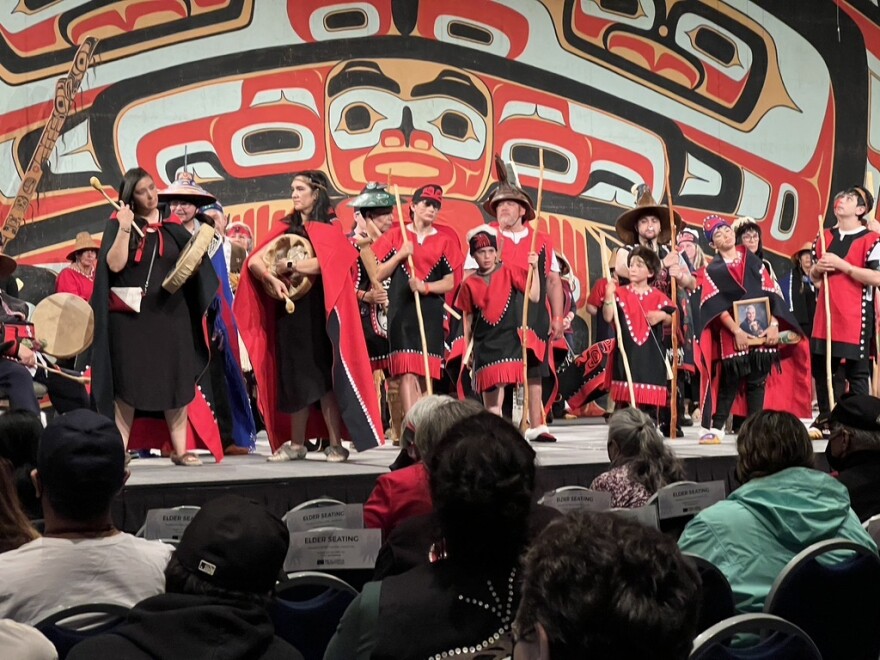The Alaska Travel Industry Association has created a new seat on its board, set aside for tribal representation.
ATIA’s president and CEO, Jillian Simpson, says it’s not only the right thing to do, but good for business.
“I think people want to have an authentic experience, when they travel someplace,” Simpson said. “And Alaska is the only place in the world that has the living cultures of Alaska Native people.”
Camille Ferguson, a Lingít from Sitka, currently holds one of the ATIA’s 24 board seats, but not as a designated tribal representative. She says it’s important that tourism marketing is culturally authentic, and a tribal representative would have the most expertise in that area.

“Authenticity from imagery content and video. It's so important to have somebody who is at the table to help them,” said Ferguson, who worked for the American Indian Alaska Native Tourism Association based in New Mexico, where she saw how tribal representation helped the travel industry develop culturally sensitive practices.
Ferguson says not all states collaborate with tribes, but should, not just for diversity’s sake, but to improve the overall tourism experience.
She says until recently, the Cruise industry defined the portrayal of Southeast Alaska – limiting its focus to Alaska Natives to Ketchikan, Russian history in Sitka and glaciers in Juneau.
“The diversity of Alaska is so unique. They were missing the boat. Juneau, it's got more than those glaciers,” Ferguson said. “Let's talk about the Auke people. Let's learn about those Auke people.”
Ferguson says Alaska’s travel industry is finally coming around to recognizing the untapped potential of cultural tourism – and with more tribes developing their own tourism businesses, there is lots of opportunity to collaborate.
The Alaska Native Heritage Center in Anchorage, a longtime gateway to the state’s Native cultures, says studies show that when people come to the state to experience cultural tourism, they stay longer and spend more money.
The tribal seat on the ATIA board is open to members of a federally recognized tribe or an Alaska Native corporation shareholder, should bring more involvement from tribal travel and tourism leaders. Board elections are in September.


